4 Drinks to Avoid During a Heat Wave, Experts Warn
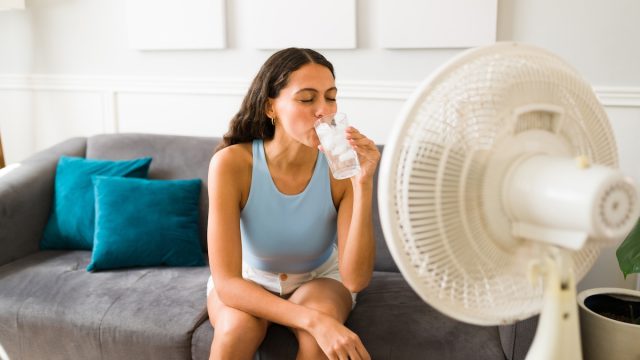
Across Southern U.S. states, 55 million people are under a heat alert as temperatures climb to 120 degrees in some places. It’s clear that such extreme temperatures are dangerous. You likely know to avoid strenuous outdoor activity, make sure elderly neighbors have air conditioning, wear plenty of sunscreen, and stay hydrated. But when it comes to this last point, experts say there are certain beverages you should avoid altogether during a heat wave to help lower your risk of experiencing adverse effects. Read on to find out what you should never drink in very hot weather.
RELATED: Portable Air Conditioners Should Be Your “Last Resort,” Experts Warn—Here’s Why.
4 Drinks to Avoid During a Heat Wave
1. Alcohol
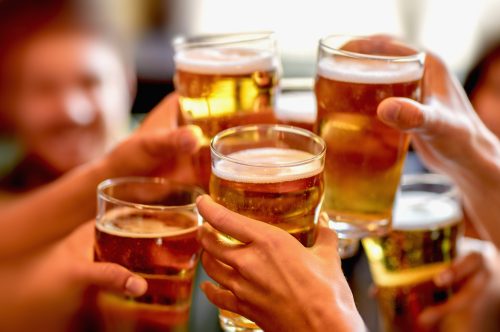
We get it: A frozen margarita or an ice-cold beer sound like the perfect way to cool down on a scorching day. But experts agree that drinking alcohol during a heat wave is the worst choice.
Alcohol is a proven diuretic, which means it increases your production of urine and thereby drains your body of water. According to the American Red Cross, “This is especially true about beer, which dehydrates the body.”
And if you work outside, the Centers for Disease Control and Prevention (CDC) advises against drinking alcohol “within 24 hours of working in the heat,” as it can “increase the risk of heat illness.”
Moreover, according to Flushing Hospital, “The body’s temperature is regulated by the hypothalamus gland. Alcohol will cause a slowing down of the hypothalamus, so if the body is already hot because of the heat, the effects of alcohol will make the body think it is even hotter.”
2. Coffee and Tea
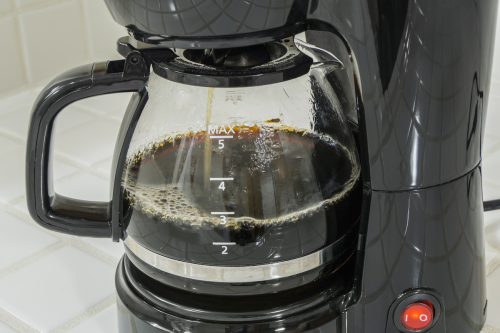
According to the Mayo Clinic, “As a chemical, caffeine increases production of urine, which means caffeine is a diuretic. But most research suggests that the fluid in caffeinated drinks balances the diuretic effect of typical caffeine levels.”
But this all depends on how used to caffeine your body is. If you drink coffee or tea daily and balance it with plenty of water, you’re probably safe to consume these drinks in moderation during a heat wave.
However, if your body is sensitive to caffeine, it could have a major dehydrating effect.
3. Soda
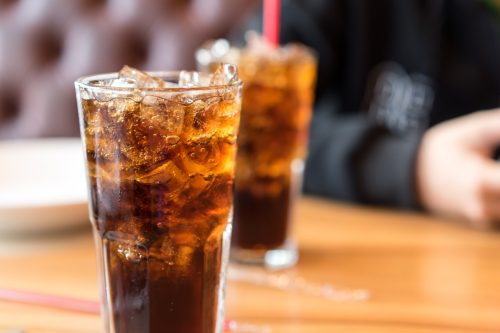
Soda also contains caffeine and should therefore be avoided, too. In addition, sodas are usually very high in sugar, which research shows can lead to further dehydration.
“This is likely because of the interaction of sugar and water within the cells,” Medical News Today explains. “Higher sugar intake causes the cells in the body to transfer more water and increase urination.”
In fact, a July 2016 study published in the American Journal of Physiology found that soft drinks worsen dehydration and increase kidney injuries.
4. Energy Drinks
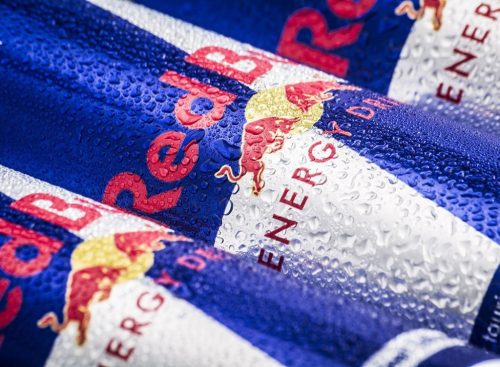
Caffeine is the culprit here, again.
“Some energy drinks contain much more caffeine than standard servings of coffee, tea, or soft drinks,” cautions the CDC. They also might contain even more sugar than soft drinks.
Do keep in mind, though, that energy drinks and sports drinks are two different things. The latter (of which Gatorade is an example) contain electrolytes, which can “replace the salt and minerals you lose in sweat,” notes the Red Cross.
For more wellness advice delivered straight to your inbox, sign up for our daily newsletter.
Look out for signs of dehydration.
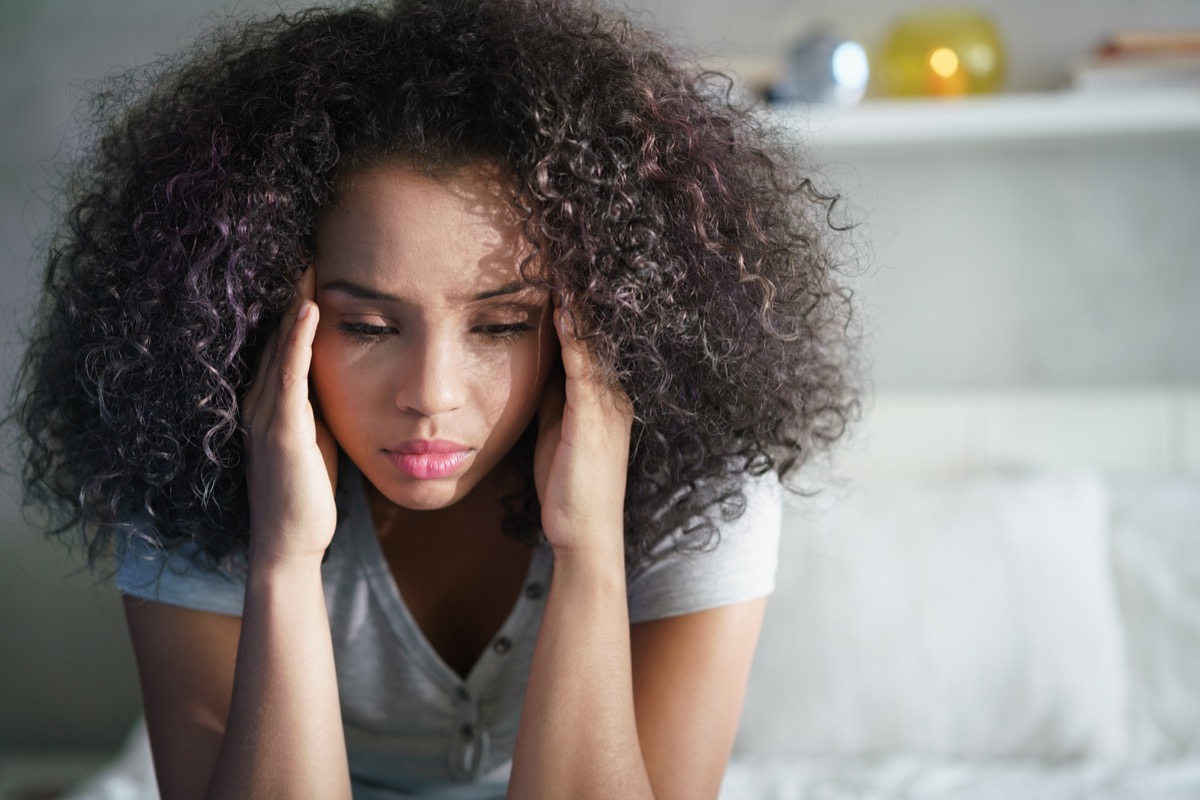
When the sun is sizzling, be sure to keep an eye out for signs that you’re dehydrated. The color of your urine can be a key indicator.
Riana Pryor, PhD, a professor in the Department of Exercise and Nutrition Sciences at the University at Buffalo, told USA Today that if your urine is the color of lemonade or lighter, you’re in the clear. However, if your urine is the color of apple juice or darker, then you need to be consuming more water.
According to Dental Touch, bad breath can also be a sign of dehydration. When you’re dehydrated, you’re not producing enough saliva, so “without saliva there to clean out debris, bacteria have the chance to grow and cause bad breath,” the site explains.
Per the U.K.’s National Health Service (NHS), other signs of dehydration include feeling thirsty, tired, dizzy, or lightheaded. Dry mouth, lips, or eyes could also be signs that you need more water.
Follow these other guidelines to stay safe during a heat wave.

There are a few key things you can do to stay safe during a heat wave. The CDC suggests staying inside in cool air (they advise against using a fan as your main cooling source), drinking plenty of water (even before you’re thirsty), limiting the use of your oven and stove, and taking cool showers during hot weather.
If you have to venture outside, you should avoid going out in the sun during the hottest times of the day.
- Source: https://onlinelibrary.wiley.com/doi/full/10.1111/j.1467-3010.2009.01795.x
- Source: https://www.weather.gov/media/fwd/A5032_AreYouReady-HeatWave.pdf
- Source: https://www.cdc.gov/niosh/mining/userfiles/works/pdfs/2017-126.pdf
- Source: https://www.mayoclinic.org/healthy-lifestyle/nutrition-and-healthy-eating/expert-answers/caffeinated-drinks/faq-20057965
- Source: https://journals.physiology.org/doi/full/10.1152/ajpregu.00354.2015
- Source: https://www.redcross.org/get-help/how-to-prepare-for-emergencies/types-of-emergencies/extreme-heat-safety.html
- Source: https://www.nhs.uk/conditions/dehydration/
- Source: https://www.cdc.gov/nceh/features/extremeheat/index.html